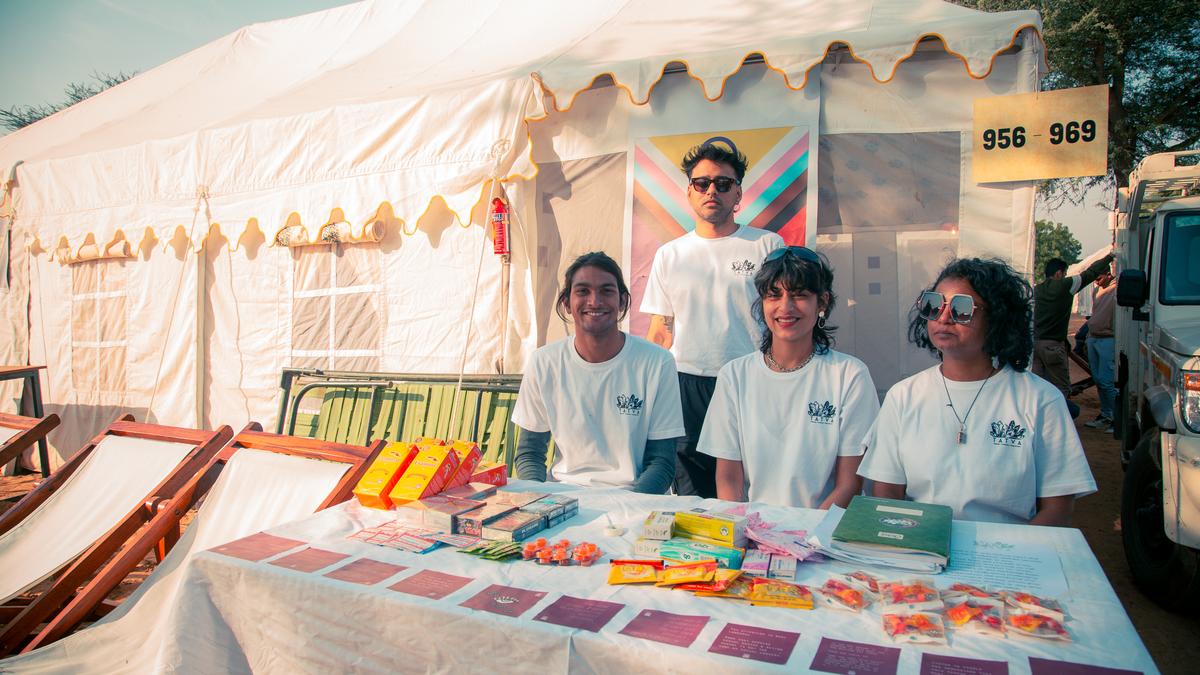
Music festivals are embracing support services and mindful spaces for a better experience
The Hindu
Music festivals prioritize emotional well-being through welfare support, mental health resources, and safe spaces for attendees worldwide.
Adarsh, a 32-year-old data analyst from Mumbai, frequently attends music festivals. Alongside his enjoyment of a gin and tonic while immersed in music, Adarsh has another ritual — he admits to smoking a joint or two before a concert, citing the buzz it adds to the experience.
However, a particularly crowded music festival in 2022 left him with a terrible buzz, exacerbating a panic attack. Attending these events solo, Adarsh found himself sweating profusely and feeling nauseous. “I asked a volunteer for water and allowed my body to readjust before deciding to go home. I vowed never to attend a concert stoned,” he says.
Adarsh’s experience is not uncommon, as numerous concert-goers tend to immerse themselves fully in the vibrant atmosphere of music festivals. It is worth noting that feeling unsettled at a concert does not always originate from the use of recreational drugs or alcohol; sometimes, it can be a bodily reaction to the intense stimuli of a particularly energetic and lively environment.
Recognising the importance of emotional health in such situations, music festivals are taking steps to ensure attendees have a safe space to turn to when needed. Emotional welfare booths are emerging as holistic support centres, addressing not only mental health needs but also assisting with physical well-being.
Many global music festivals now offer welfare support alongside medical services to enhance attendee well-being. Glastonbury Festival in the UK features ‘Sanctuary’ areas with mental health professionals, while Burning Man’s ‘Zendo Project’ provides emotional support, especially for those navigating difficult experiences. Tomorrowland has a ‘Comfort Zone’ for mental health assistance and comprehensive first aid. Coachella offers harm reduction resources and medical tents, while Boom Festival, which is held in Portugal, prioritises wellness with its ‘Kosmicare’ service, supporting those in emotional distress.
In India, however, these resources at festivals are few and far between. Tatva, an international emotional well-being organisation, has been setting up a caring space at the Magnetic Fields music festival in Rajasthan for over five years now. Sarah Chawla, the co-founder of Magnetic Fields, emphasises the importance of this service. The collaboration has extended beyond welfare, with the festival’s core security team participating in a four-hour sensitivity training workshop, showing a commitment to evolving and prioritising the well-being of attendees each year.
The welfare team plays a crucial role as a mediator between accidents and incidents involving attendees, security, and medical support at the music festival. Serving as the first responders, the team is equipped with LBGTQIA+ sensitisation, training in bystander intervention, and the ability to provide support through active listening and guidance. “The welfare area serves as a space for patrons to drop in for conversations, access sex-positive information, learn about consent culture, report any incidents of discrimination or harassment, and find respite during the day or warmth at night,” says Kripi Malviya, creator at Tatva Centre.





















 Run 3 Space | Play Space Running Game
Run 3 Space | Play Space Running Game Traffic Jam 3D | Online Racing Game
Traffic Jam 3D | Online Racing Game Duck Hunt | Play Old Classic Game
Duck Hunt | Play Old Classic Game











